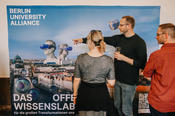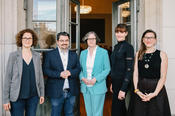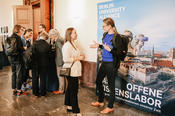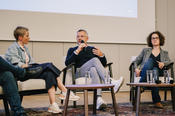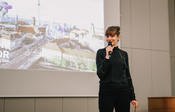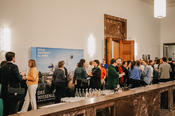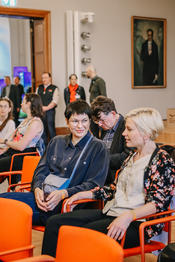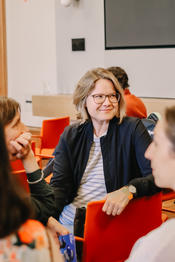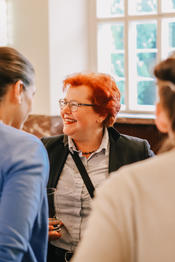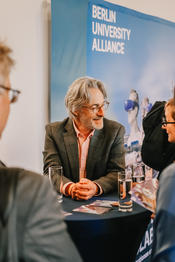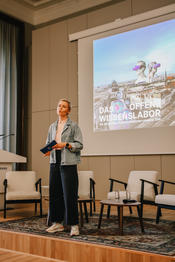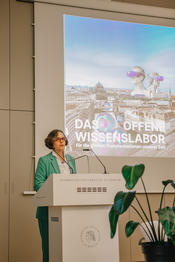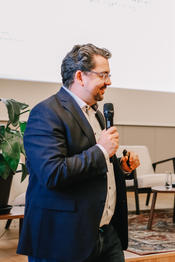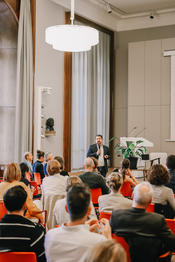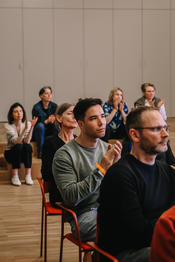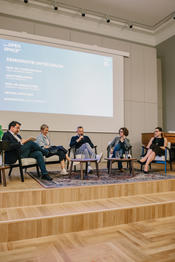Review BUA Open Space: Democracy under pressure
“Democracy under pressure” - this was the topic of the first BUA Open Space of the Berlin University Alliance on May 6 in the Senate Hall of Humboldt University. The evening was also the launch of the campaign THE OPEN LAB - FOR THE GREAT TRANSFORMATIONS OF OUR TIME.
What strategies against populism are there for democratic parties? Prof. Heike Klüver (HU Berlin, Scripts Cluster of Excellence) reported on her research: "Populist parties often stylize themselves as the true voice of the people. However, it is possible to reveal that their policies are primarily self-serving and thus disenchant the parties. Another successful strategy is to deliberately focus on issues on which sympathizers of populist parties disagree with the party."
What about the integrity of elections in times of rising populism? The answer from Prof. Thorsten Faas (FU Berlin): "We have actors who question the central instrument of democracy - namely elections. But in Germany in particular, elections have some of the highest integrity in the world". And even if the Berlin election of 2021 subjectively left a different impression: the functioning repeat election has restored confidence in the electoral system.
The mood in the country has changed, said Michael Roth (MP and Chairman of the Committee on Foreign Affairs) in the panel discussion, referring to the attack on SPD politician Ecke: "Many people have become more aggressive and angry. People are recognizing things that are not even proven as facts. It has become comfortable to constantly elevate oneself above others. I experience this anger and aggression every day and for me it was always only a matter of time before words turned into deeds."
Julia Friedlander (CEO of Atlantikbrücke) made a comparison with the USA: “My perception is that there is more incitement against others and more acute racism in Germany.” “Why are populist parties so attractive?” she asked. "It's often the fear of losing. And that needs to be recognized by politicians."
According to Thorsten Faas, communication is crucial here "The necessary transformations touch on many essential questions that affect our everyday lives. For example, the question of how we will feed ourselves or get around in the future. This needs to be communicated transparently and well."

